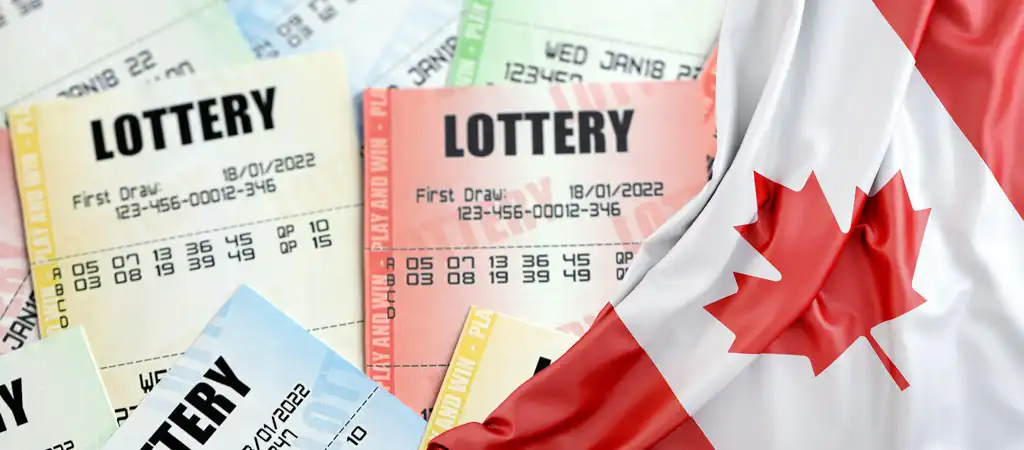Lottery Canada - Journey from Tradition to Entertainment
Lottery is a game of chance where numbers are pulled randomly. This game dates back to ancient Genoa, serving initially not as a gamble but as a method for selecting senators using numbered balls. The term 'lottery' stems from the Italian word lotto , signifying chance and destiny.
By the 19th century, lotteries had taken root globally, yet faced prohibition in the 20th century alongside other gambling forms, staying illegal until post-WWII reforms allowed legal play again. casino A pivotal reason behind their re-legalization was the state revenue boost without the need to hike taxes. Today, lotteries, like other gambling, are tightly monitored by law.
Canadian Lottery Back in Time
Over time, Canadian authorities identified the potential in gambling, particularly lotteries. With Quebec and Manitoba paving the way in 1970, lotteries, bingo, and raffles soon returned, initially with their earnings directed towards charitable causes .

Loto-Quebec became the trailblazer for Canadian lotteries. Gradually, it extended its services to other provinces, effectively boosting income for both residents and regional governments. The inaugural National Lottery Canada premiered in 1974.
The creation of the Canadian Olympic Lottery aimed to fund the Montreal Olympic Games. Back then, a $10 ticket offered a handsome $1 million 💰 jackpot—substantial enough to entice residents to take a chance. This prize pool was shared among nine fortunate players when numbers 3093734 won.
Lottery Canada - Master the art of the lottery!
The thrill of the lottery extends beyond mere entertainment — it offers a shot at awe-inspiring jackpots. Those stories of winners whose single ticket buy catapults them to a new life resonate with many 🤑. Definitely worth the risk!
Participating in the lottery simply requires you to pick a selection or line of numbers post-ticket purchase. Usually, these are composed of 5 to 7 picks, chosen from ranges 1-45 or 1-50. Achieving jackpot glory demands matching all your numbers with the drawn set.
Lottery Canada today
Games of chance, like lotteries, are woven into Canadian culture. Citizens freely channel luck, driven by the mantra that without a play, success is guaranteed nil 📊. The beauty of lotteries isn't just the jackpot; it's in not losing hefty sums but potentially claiming a small fortune 💎. Winnings below $1000 are conveniently redeemable at any Canadian lottery point.

Modern times see three heavyweight national lottery games: Lotto 6/49 , Lotto Max , and the Daily Grand . Beyond these, regional lotteries thrive, courtesy of bodies like:
- Loto-Quebec
- Ontario Lottery and Gaming Corporation
- Atlantic Lottery Corporation
- Western Canada Lottery Corporation
- British Columbia Lottery Corporation
Like yesteryears, every penny from lotteries is earmarked for public or civil projects . Skeptics can rest easy; funds are funneled towards constructive and community-benefiting initiatives 💸. Tempting to grab a ticket, right?
A standout aspect of lottery gains is their tax-free status. They're perceived as 'windfalls', akin to gifts or inheritances. This tax policy aligns with Canadian lotteries being run by governmental or charitable bodies, ensuring ticket proceeds are channeled towards welfare goals .
Canadian Lottery Online
In the digital era, Canadian lottery games embrace the internet landscape. Online users can mark numbers and receive instant notifications for wins. This eliminates missed draws or misplaced tickets. Registering online means automatic deposits into personal accounts , suiting those bustling lifestyles while preserving the lottery thrill.
The upsides and downsides of participating in the lottery:
| 🍀 The pros of the lottery | 🍀 The cons of the lottery |
|---|---|
| Fun and relaxing | If you don't win for a long time |
| Small and big winnings | |
| Excitement | |
| Winnings are tax free | |
| Can be a community experience | |
| All revenues from lotteries contribute to public or civic projects |
Striking gold in Lottery Canada comes tax-free, whether scooping smaller gains or hitting the jackpot. Even non-residents are eligible; clutching the winning ticket 🎟️ is all that's needed. And rest assured, their winnings aren't taxable.
The choice to venture into Lottery Canada lies individually. For countless long-time participants yet to win, tales of life-altering wins fuel hope. Go on, test your fortunes! 🍀💯
